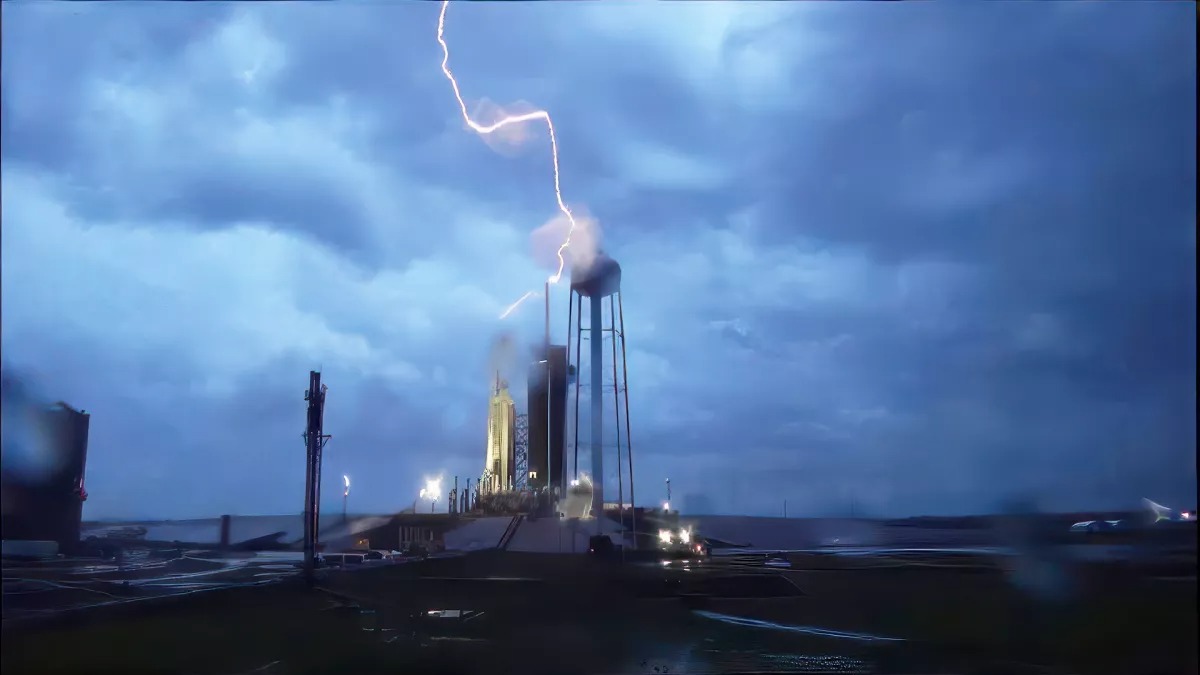A stunning video posted on social media captured the amazing moment when lightning struck the launch pad as the SpaceX Falcon Heavy rocket was waiting to launch on Thursday, April 27. On that day, there was severe weather over NASA’s Kennedy Space Center in Florida, meteorologists warned of lightning and even tornadoes, which caused the Falcon Heavy launch attempt to be postponed until April 30.

Cameras around the launch pad recorded lightning strikes into the protective mast at the top of the stationary tower at Launch Complex 39A (LC-39A). The mast is designed to divert and safely ground the electric charge from the rocket on the launch pad.
Last night’s storm in Florida produced hail, tornadoes, and lightning. Following this strike on the tower at 39A, teams performed additional checkouts of Falcon Heavy, the payloads, and ground support equipment pic.twitter.com/GZwCARaZTx
— SpaceX (@SpaceX) April 28, 2023
Then, after the lightning, heavy hail followed, and a tornado was even seen nearby. SpaceX canceled the launch and monitored the condition of the rocket, payload and ground support equipment during all bad weather.
The checks showed that the lightning mast was working properly, protecting the rocket and its payload from damage. Spaceflight Now posted on Twitter an incredible video of the strike from the launch pad, which demonstrated the powerful force of the elements when the discharge lit up the stormy Florida sky.
Here’s a video of that lightning strike at the Falcon Heavy’s launch pad. pic.twitter.com/YOe9a9AwQW
— Spaceflight Now (@SpaceflightNow) April 28, 2023
One lightning and two postponements
The launch scheduled for April 27 was aimed at putting the ViaSat-3 Americas satellite into orbit. But due to bad weather, the take-off was postponed to Friday, April 28, but it was rejected again due to bad weather. Falcon Heavy finally launched with a 6.4-ton satellite on April 30.
This was the sixth successful flight of the SpaceX Falcon Heavy rocket, consisting of three blocks of the first stage of the Falcon 9 rocket connected together. This particular flight also carried a communications satellite called Arcturus, which would be operated by San Francisco-based Astranis Space Technologies, as well as a cubesat called GS-1, operated by Washington-based Gravity Space.
Earlier we reported on how the launch of the SpaceX Falcon Heavy rocket was seen from the ISS.
Follow us on Twitter to get the most interesting space news in time
https://twitter.com/ust_magazine

